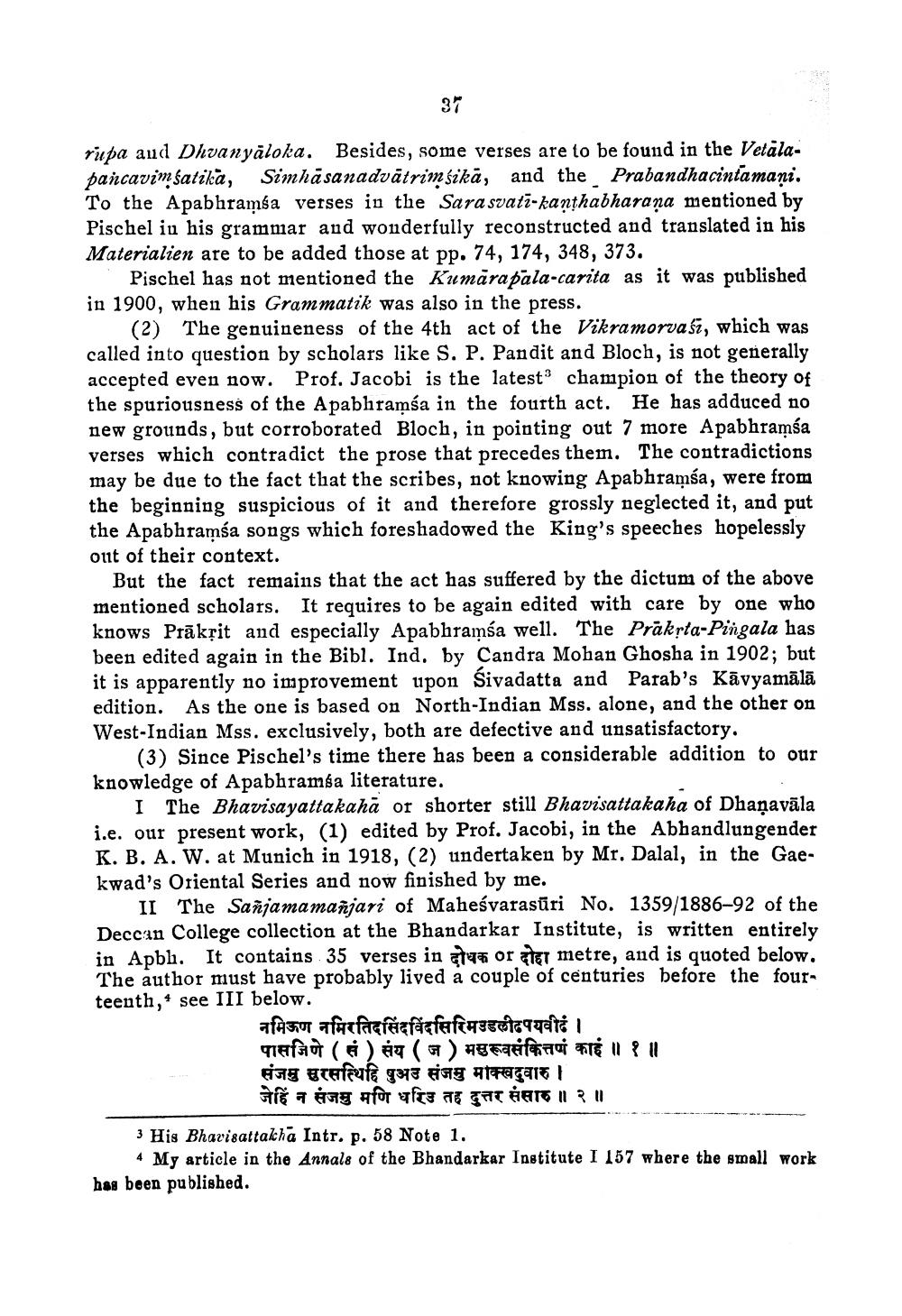________________
ripa aud Dhvanyaloka. Besides, some verses are to be found in the Vetalapancavim satika, Simhasanadvātrim śikā, and the Prabandhacintamani. To the Apabhramsa verses in the Sara svatī-kanthabharana mentioned by Pischel in his grammar and wonderfully reconstructed and translated in his Materialien are to be added those at pp. 74, 174, 348, 373.
Pischel has not mentioned the Kumāra pala-carita as it was published in 1900, when his Grammatik was also in the press.
(2) The genuineness of the 4th act of the Vikramorvaś, which was called into question by scholars like S. P. Pandit and Bloch, is not generally accepted even now. Prof. Jacobi is the latest champion of the theory of the spuriousness of the Apabhramsa in the fourth act. He has adduced no new grounds, but corroborated Bloch, in pointing out 7 more Apabhramsa verses which contradict the prose that precedes them. The contradictions may be due to the fact that the scribes, not knowing Apabhramsa, were from the beginning suspicious of it and therefore grossly neglected it, and put the Apabhramsa songs which foreshadowed the King's speeches hopelessly out of their context.
But the fact remains that the act has suffered by the dictum of the above mentioned scholars. It requires to be again edited with care by one who knows Prākṣit and especially Apabhramba well. The Prakrta-Pingala has been edited again in the Bibl. Ind. by Candra Mohan Ghosha in 1902; but it is apparently no inprovement upon Śivadatta and Parab's Kävyamālā edition. As the one is based on North-Indian Mss. alone, and the other on West Indian Mss. exclusively, both are defective and unsatisfactory.
(3) Since Pischel's time there has been a considerable addition to our knowledge of Apabhramba literature.
I The Bhavisayattakahā or shorter still Bhavisattakaha of Dhaņavāla i.e. our present work, (1) edited by Prof. Jacobi, in the Abhandlungender K. B. A. W. at Munich in 1918, (2) undertaken by Mr. Dalal, in the Gaekwad's Oriental Series and now finished by me.
II The Sanjamamañjari of Maheśvarasüri No. 1359/1886-92 of the Deccan College collection at the Bhandarkar Institute, is written entirely in Apbh. It contains 35 verses in an or let metre, and is quoted below. The author must have probably lived a couple of centuries before the fourteenth,see III below.
नमिऊण नमिरतिदसिंदविंदसिरिमउडलीढपयवीरें। Tafat ( 8 (99) 486aeferoj llllll संजमु सुरसस्थिहि षुअउ संजमु मक्खिदुवार । जेहिं न संजमु मणि धरिउ तह दुत्तर संसारु॥२॥
3 His Bhavisattakha Intr. p. 58 Note 1.
4 My article in the Annals of the Bhandarkar Institute I 157 where the small work has been published.




